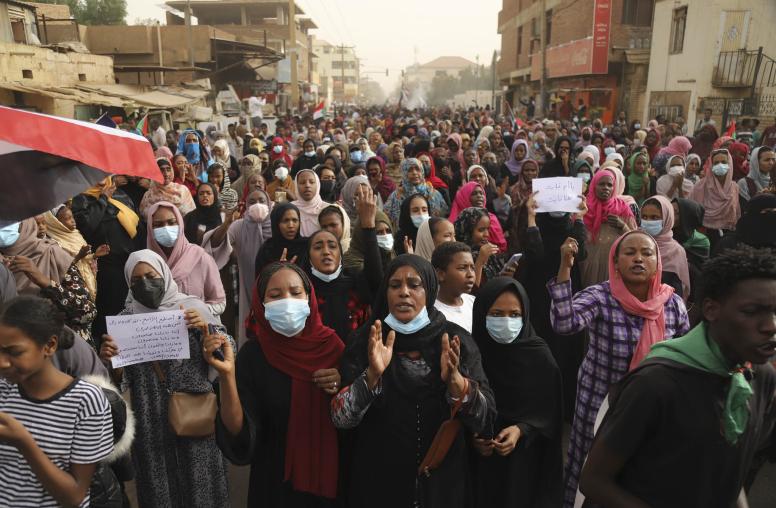Mediating Mass Movements
Mediators should rethink their approach to inclusion and engage social movements in formal peace processes and beyond.
Editor’s Note: This excerpt is from an Oslo Forum paper published by the Centre for Humanitarian Dialogue.
People power is a defining feature of our time. In 2019, movements in Sudan and Algeria forced entrenched military dictators from power. In Hong Kong, millions of citizens have taken to the streets to demand democratic self-rule. Chile, Colombia, Lebanon and Iraq faced popular uprisings by citizens railing against corruption, government incompetence and dysfunctional political and economic systems. These protests are happening at a time of resurgent authoritarianism, marked by a 13-year global decline in civil and political rights and an erosion of the rule of law. Widening inequality, rampant corruption, and the fraying of social contracts between governments and their citizens are at the roots of many of these conflicts.

The current COVID-19 crisis has, in many places, stalled one of the most visible people-power actions, mass protest, as citizens practice social distancing and stay at home. However, recent mass protests in the U.S. in response to police brutality and systemic racism, along with solidarity protests around the world, have shown that people are willing to take to the streets even in the midst of a pandemic. Governments have used COVID-19 as an excuse to consolidate repressive rule and intensify crackdowns on the opposition, posing a significant challenge to activists in places like Hungary, Venezuela and Togo. Activists have been forced to innovate in response. Chileans have turned to cacerolazos, or the coordinated banging of pots and pans, to signal their discontent with their government’s response to the virus. In Nicaragua, the pro-democracy movement has organized public education campaigns and distributed personal protective equipment and other medical supplies. Movements have increasingly turned to digital activism, such as the #Wagif Corona (#StopCorona), an online education campaign started by the Ana Taban movement in South Sudan, while youth climate activists have taken their global struggle to the virtual space with the #FightEveryCrisis campaign.
Against this backdrop, U.N. Secretary-General, Antonio Guterres, has called for a global cease-fire so that governments and actors around the world can focus on “our shared battle against COVID-19.” He highlights that citizens around the world are mobilizing online in support of this cease-fire, in addition to a growing number of governments, regional organizations, and non-state actors.
It is therefore important to consider mass movements as conflict actors in their own right and to encourage mediators to find innovative ways to engage them. This requires a careful combination of national and international mediators, as well as comprehensive preparatory processes to address some of the challenges of approaching these groups. For example, movements may consist of multiple factions and do not always have clearly defined leaders. Moreover, engaging such movements requires careful trust-building, not only with movements themselves but also with the governments and other power-holders they confront, and other relevant local actors. For mediators, this means maintaining impartiality while being cognizant of the importance of upholding international law.
This paper outlines different strategies for mediating mass movements and addresses the challenges both mediators and movements face when negotiating in complex environments. It will explore three cases and discuss opportunities for strengthening the engagement of mediators with movements.
Continue reading about how mediators can engage mass movements with examples from Ecuador, Nicaragua, and Sudan.


